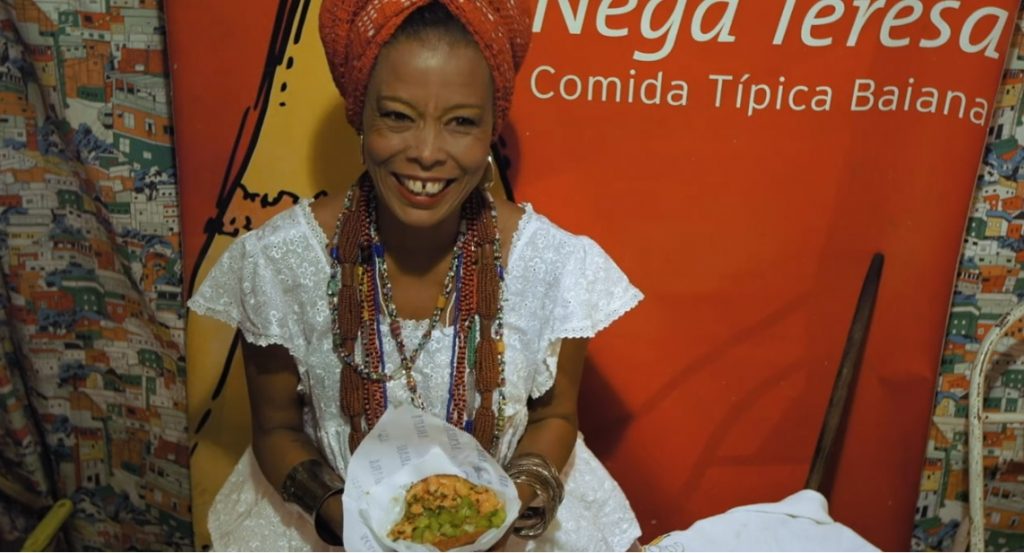São Paulo – “The Muslims slaves had falafel and, when arriving in Brazil, they couldn’t find chickpeas. So, they started adapting [the recipe] using beans,” said Nega Teresa (pictured above), a cook from Rio de Janeiro, in the documentary series “A História da Alimentação no Brasil” recently launched on Amazon Prime Video. The eighth episode of the series, called “African Diet”, addresses the African influence in Brazil’s dietary habits. The series is based on a book of the same name by anthropologist Luís da Câmara Cascudo (1898-1986) and divided in 13 episodes.
In an email interview, the director of the series, Eugenio Puppo, talked about the work and the relation between falafel – an Arab patty made from chickpeas – and acarajé – a dish traditionally encountered in Bahia.
“It’s hard to say anything for sure about a dish or food habit, because that would be a very limited view on the interaction process between cultures. However, some people that study diet say that acarajé is an adaptation from falafel, that when North Africans came to Brazil or influenced the Portuguese culture, it led to substitute chickpeas with cowpeas,” Puppo said.

The traditional acarajé is made from peeled beans formed into a ball and then deep-fried in dendê (palm oil), split in half and stuffed with hot pepper, vatapá, caruru and shrimp, as Nega Teresa explains in the documentary.
As for falafel, it is made from ground chickpeas and several spices and herbs such as onions, garlic, cumin, cilantro, parley, Syrian pepper and even cinnamon formed into a ball and drizzled with tahini-based sauces or served in Arab sandwiches.
The director says that it is impossible to pinpoint the time when this derivation occurred and that there are two plausible hypotheses. “It was probably when enslaved Africans came to the region of Recôncavo Bahiano. Another hypothesis is that the North African food culture were already absorbed by the Portuguese, because of the long-time occupation of the territory by the Moors,” he said.
Puppo elaborates on the second hypothesis, saying that, when we talk about the European origins of the Brazilian cuisine, they were already loaded with several prior cultural interactions between Portugal and other peoples.
“The point is that Cascudo sees the country’s colonization process as a key point to start thinking about the Brazilian diet, with an anti-regionalist approach. Of course, that is a simplification, an all-encompassing view even, but the encounter between these three figures – the Portuguese colonizer, the Indian, and the slaved African – creates, he says, a dynamic in our diet that lasts up until now. That is why he says that. But the Portuguese legacy already had other legacies on its own,” he said.
Puppo says that other two ingredients in Brazilians’ daily diet – olive oil and honey – probably come from this Arab influence in Portugal and Brazil.
Other episodes of the series tell the history of ingredients and recipes typically encountered across Brazil, such as cassava flour, maize, couscous, coconut milk, banana, tucupi, Portuguese influences, and others.
Quick Facts
“A História da Alimentação no Brasil” (2017)
13-episode documentary series
Director: Eugenio Puppo
Available on Amazon Prime Video
Translated by Guilherme Miranda




